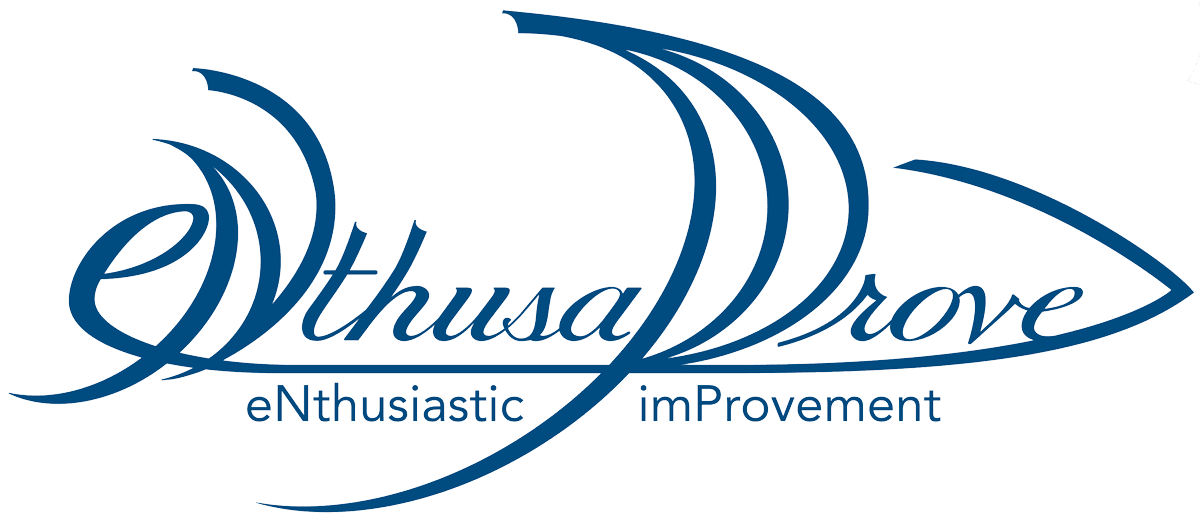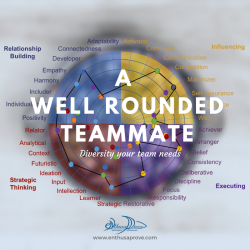Training Catalog
Here is a list of course descriptions we can provide to your organization. These can have varying length and depth to suit your needs, though we’ve included typical values for a starting point.
Play is Crucial Hard Work: Gamification and Edutainment in the Workplace
Time: 2-8 hours (depends on playful activities designed for you)
Play in the workplace is a new trend, but is it a valuable one? Organizations are constantly adapting to the changing world where the focus is on results. In the rush, where do ideas come from? Having a place, space, time for playful activity opens the door to a crucial thing for competitive advantage, learning! In this course, participants will learn about the benefits of playing, the costs of discouraging playful activity, types of play, and practice being gutsy enough to integrate it into professional work!
We need to do Risk Management on our Projects…Can someone tell me how to get started?
Time: 4-8 hours
Risk management is critical yet it can quickly become a bureaucratic sinkhole. The trick is to keep in mind the fundamental elements of risk, and to have a easy to use way to differentiate those you’re willing to accept from those that you want to avoid or mitigate. In this session, we will learn how to use Deming’s theory to have more effective conversations about risks as a team through our own learning cycle, a game. Roll up your sleeves for this simulation to learn how to navigate the monsters and paper cuts of a project toward success.
Three Considerations to Help Your Numbers Tell Their Story (hints on helping others see what the quantitative data really say)
Time: 2-8 hours
The survey you sent out last year, customer feedback, or traffic data from your website, what is it telling you? Getting your numbers to tell their story is critical for problem solving and changing minds. Great graphs are not new. We will provide some techniques to consider for the next time you are making a key point with your numbers.
Simple Project Management to Align your Team
Time: 4-8 hours
Project management can seem like a complex web of documents, software, and sticky notes, but it doesn’t have to be that way. This course takes project management to its basics and gives tips, tools, and case studies for getting a group of people working together to make something great. The course focuses on the interpersonal dynamics of project management, communication, risk, HR, and integration. These areas are where teamwork is crucial for success and depend much more on the Project Manager’s individual skill set.
Effective Presentations – The Art of Presenting Data and Decisions
Time: 4-8 hours
We share clever ways to compel your audience to listen to you and remember the message when you are building that critical deck of slides for your clients or shareholders. Don’t kill them with bullets… respect them and get your story across. Based on the highly acclaimed work of W. Edward Tufte and applied by eNthusaProve in the real world for the last ten years.
Team Development
Time: 4-8 hours
Each of us have preferences for how we receive information and make decisions. Many of us have learned from the school of hard knocks that people perceive the same information very differently. Have you been perplexed by what a board member remembers or the questions they ask? By viewing yours and your teammates communication styles, you can increase your effectiveness. Understanding the way you were made to gather information and process data is an effective self management tool as well. Come to learn shortcuts to read and adapt to other’s information and decision-making needs, making each interaction as valuable as possible.
Managing a Multigenerational Task Force
Time: 1-2 hours
The life experiences of each generation forms the way that each generation prefers to work. A manager of a multi-generational task force must appreciate these differences. This course will not paint a broad brush about the tendencies of all within each age range, placing personality-type monikers on age ranges. This course is built on the belief that people want to connect to a larger purpose or cause, create value, and contribute that value to the larger mission, regardless of their generational identity. This common ground guides us to see how the generations are affected by the changes to the world around us. We will strive to see how life stage and life experience shape the methods of contributing value to the team in the workplace.
Change Management: Keeping JOY in Work
Time: 1-2 hours
Change is hard to swallow, so much so that many of us try to reduce or delay it into oblivion. This course looks at the idea of change management from world-class author perspectives to build tenets of creating joy in work and embracing change. We will differentiate cosmetic change (e.g. reorganizations) from attitudinal change (e.g. seeing new possibilities).
Decision Making with Statistics
Time: 1-2 hours
Wondered if your business is “normal?” Normally, it’s not. Confused? We’re talking statistics here, and most of your operational data is probably not “normal”, but most of us mistakenly make business decisions on our data using ‘normal’ thinking. Paul will share a quick non-nerdy understanding of typical statistics about data such as spending vs. budget, meeting schedules, and task completion times…and keep you from making the “normal” mistake.
Lean, Six Sigma, and 5S – Where do I use them?
Time: 4-8 hours (depending on depth of understanding)
Have you ever thought…”Can somebody please explain the difference between Lean, Six Sigma, 5S and all those other crazy terms and whether I’d ever want to do that stuff in my business?” We have. With over 20 years leading, facilitating and planning these practices, we have become amusingly adept at simple ways to know what they are, how to tell them apart, and when you might want to use one.
Lean – Throwing Out Waste in Professional Working Environment
Time: 4 hours
Lean is a set of strategies for looking at waste in our processes and streamlining operations. This course will look at these strategies through the lens of the professional working environment and the types of waste that destroy white-collar productivity…and morale. Participants will get a chance to practice applying lean techniques to some classic white collar and management processes.
Process Management: Systemic Employee Engagement
Time: 8 hours
What is a process? How do you manage it? This course explains what a process is and why it is different than a procedure. Taking a process view of your work changes the influence levers. Process management moves the approach from pressuring people to perform to a system view that looks for barriers and bottlenecks. This management view is a time-tested foundation for employee engagement, which we will practice with exercises.
Innovation – The critical key to improvement
Time: 2-4 hours
Are you bored with brainstorming? In this course we explore the techniques beyond brainstorming. See the processes for gaining understanding of customer needs; applying the best problem solving approach; capturing diverse opinions for a unified but holistic set of solution sets.





